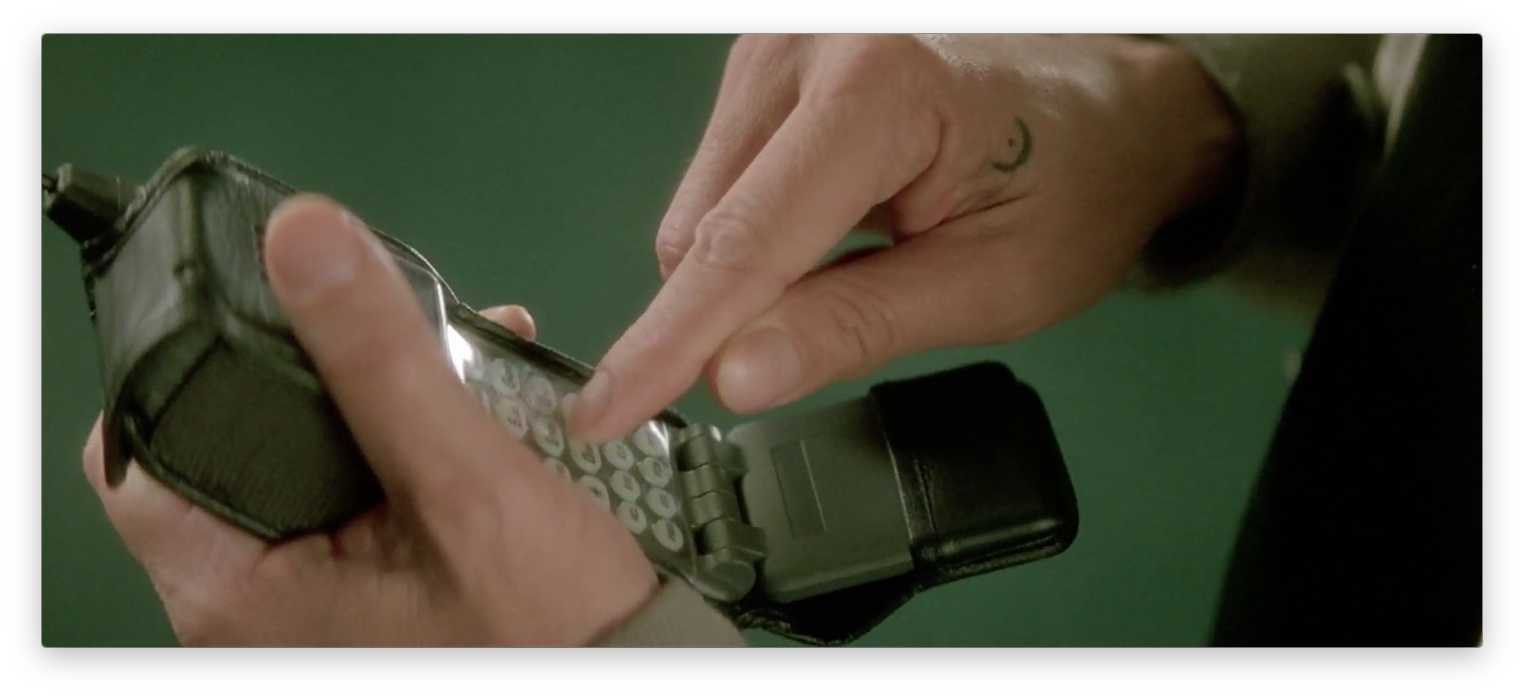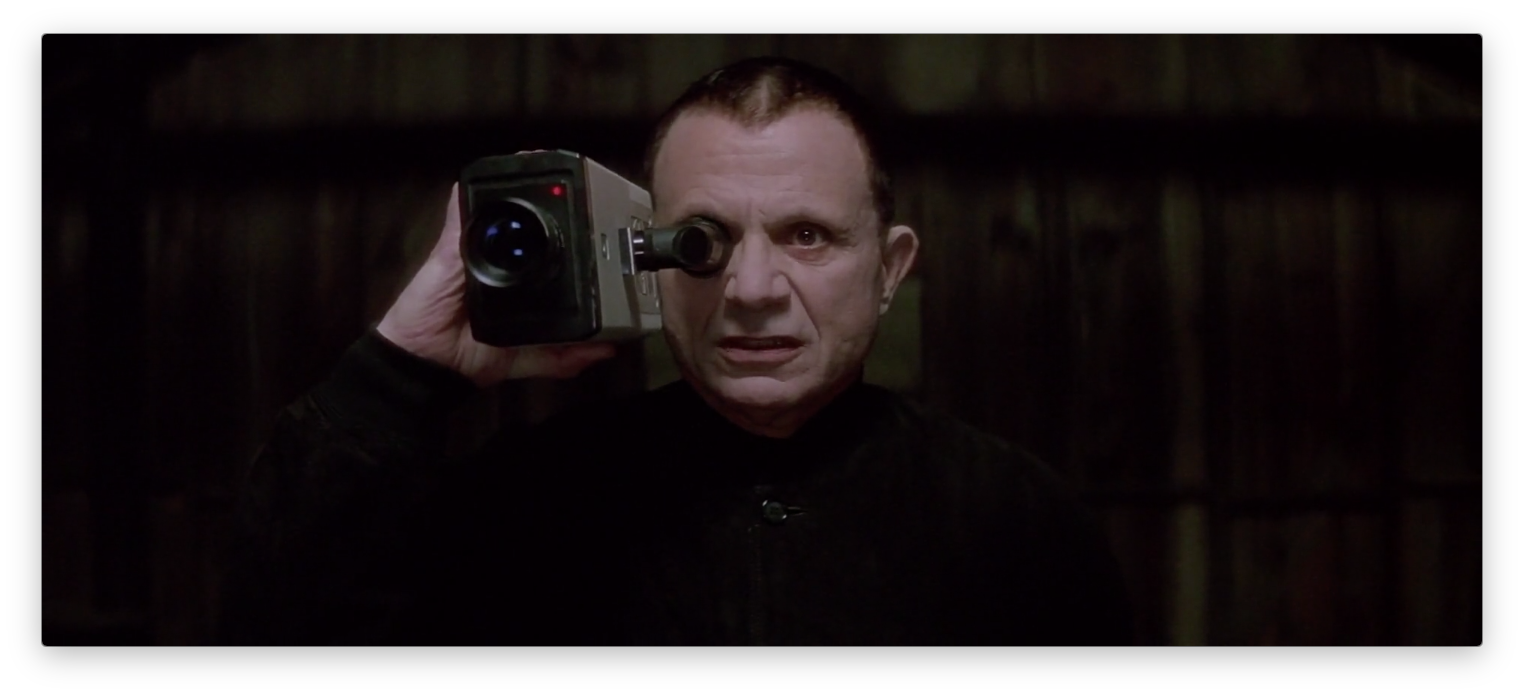You have just read a blog post written by Jason McIntosh.
If you wish, you can visit the rest of the blog, or subscribe to it via RSS. You can also find Jason on Twitter, or send him an email.
Thank you kindly for your time and attention today.

Benjamen Walker started talking about Lost Highway on the latest installment of The Theory of Everything — a long-time favorite podcast — so I figured the time had come for me to finally see this picture. Nearly 20 years have gone by without my knowing a single thing about it, other than it containing that one Smashing Pumpkins song, and a vague awareness that mainstream critics didn’t really like it at the time.
Not that I always liked Lynch much either. I loved watching Twin Peaks while it aired, but not really because I enjoyed the show itself. A high-school classmate I admired talked it up a lot, and that got me to start watching it midway into the first season (after the best, earliest episodes had already aired and gone). It also opened the door to my very first taste of online fandom, contemporary as it was with my first tooling around GEnie at 300 baud.
In the years since then, I’ve learned to appreciate Lynch’s actual material more, if inconsistently. I love Eraserhead, of all things. I suffer bizarre stress-dreams with some regularity, especially when my real-life burdens pile a little higher or sit a little heavier than usual. So in my eyes, Eraserhead uniquely and delightfully adapts a stress-nightmare into film, capturing both the dread and the retrospectively absurd humor of these sorts of dreams, all bound up with loathing over a responsibility one might not want or really even understand. And then, shortly after seeing Eraserhead on DVD for the first time, I saw Inland Empire at the Brattle upon its release, and found it simply inscrutable.
This year also marks the 20th anniversary of my graduation from college. For this reason, according to my first-impression automatic reckoning of time and sequential events, 1996 or 1997 still acts a hard border that separates the distant past from the recent. I felt that way in 1999, and I feel that way today. I wonder how long I’ll continue holding onto this feeling, and how universal this experience is. I mention this here because I started Lost Highway aware of its 1997 vintage, and found myself just a little bowled over by how many utterly obsolete artifacts and practices the film, with its contemporary setting, contained. Newspapers! Land lines! VCRs! Maximum-security prison cells holding only one prisoner apiece!
Armed with all these intervening years of experience at both Lynch film and life in general, did I arrive at a watertight interpretation of Lost Highway right after my first viewing of it last night? No, of course not. I thought, from Walker’s podcast, that it would reveal itself in the end as a nightmare swirling around a certain crime that he named before I could pause the podcast — but that ended up not being the spoiler I feared, since said crime occurs at the end of the first act.
The straight read seems to involve a supernatural agent, literally diabolic, causing shenanigans too terrible to describe for unclear reasons. I hold tightly to a peculiar scene involving a conversation among confused prison guards, which seems to exist specifically to let the audience know that the oddities we see exist in the film world’s own objective reality, and not just all in the mind of the protagonist. But given that information, I find myself unsure what I’m meant to do with it.
The only other clues left for us involve the head-wound Pete has when we first meet him, and what little we know about the night he can’t remember, the one his parents refuse to tell him about. Twice, in flashback, his girlfriend and family run towards him, shouting his name, and then we see a blurry close-up of what looks like rending, puckering flesh. Is that Pete’s head, somehow? Did the “the man” who his dad recalled as accompanying him make that happen, whatever it is?
Unlike with my immediate interpretation of The Shining as a straight-ahead ghost story — which I still maintain, a year later — I don’t think that Lost Highway gives us enough information to infer the in-world rules binding the beautiful horrors on display. It scatters a few torn pages we can arrange variously, but none start to approach an explanation for the film’s most obvious, transformational turning points, as inexplicable for the prison wardens inside the movie as to the audience outside. We must feel satisfied with a tone-poem tangle of people bound together in such a frenzy of lust and jealousy that they somehow summon the services of a gnomish man who, for all his uncertain relationship to time and space, possesses an extremely year-bound taste in portable communication and audiovisual technology.

To share a response that links to this page from somewhere else on the web, paste its URL here.